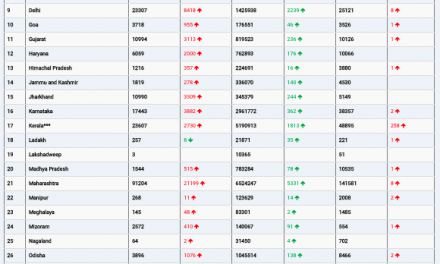February 13, 2024 – A recent study conducted by researchers from the Sungkyunkwan University School of Medicine in Seoul, Korea, has unveiled a concerning association between high-risk strains of the human papillomavirus (HPV) and cardiovascular disease mortality in women.
HPV, the most common sexually transmitted infection globally, affects about 12% of women worldwide. While high-risk forms of HPV are known to increase the risk of various cancers, including cervical cancer, this latest research highlights a previously unrecognized link between HPV and cardiovascular health.
Lead author Dr. Seungho Ryu, a professor in the Center for Cohort Studies at Kangbuk Samsung Hospital, emphasized the significance of exploring additional risk factors for heart disease beyond traditional indicators like smoking and high cholesterol.
“Despite significant progress in managing known risk factors, heart disease remains a leading cause of death,” Dr. Ryu told Medical News Today. “Conventional risk factors do not account for all cases of heart disease, underscoring the importance of exploring additional variable risk factors.”
The study, published in the European Heart Journal, analyzed data from over 163,000 Korean women without a history of cardiovascular disease. Participants underwent health screenings, including cervical cancer screening for high-risk HPV strains.
Researchers found that women infected with high-risk HPV strains were at a significantly higher risk of cardiovascular disease mortality compared to those without the infection. Specifically, they were nearly four times more likely to develop blocked arteries and had a 3.74 times higher risk of dying from cardiovascular disease.
Dr. Ryu explained that high-risk HPV infections may contribute to cardiovascular disease mortality through mechanisms involving chronic inflammation and impacts on atherosclerosis, the buildup of plaque in arteries.
While the study provides valuable insights into the link between HPV and cardiovascular health, Dr. Ryu emphasized the need for further research to address limitations, including demographic focus and lack of vaccination data.
Dr. Nicole Weinberg, a board-certified cardiologist, highlighted the importance of identifying and treating sources of chronic inflammation like HPV. However, Dr. G. Thomas Ruiz, a board-certified OB/GYN, expressed skepticism about the study’s findings, calling for more diverse study populations to validate the results.
As researchers continue to explore the systemic effects of HPV, further studies involving broader populations and longitudinal analyses are needed to fully understand its impact on cardiovascular health.












